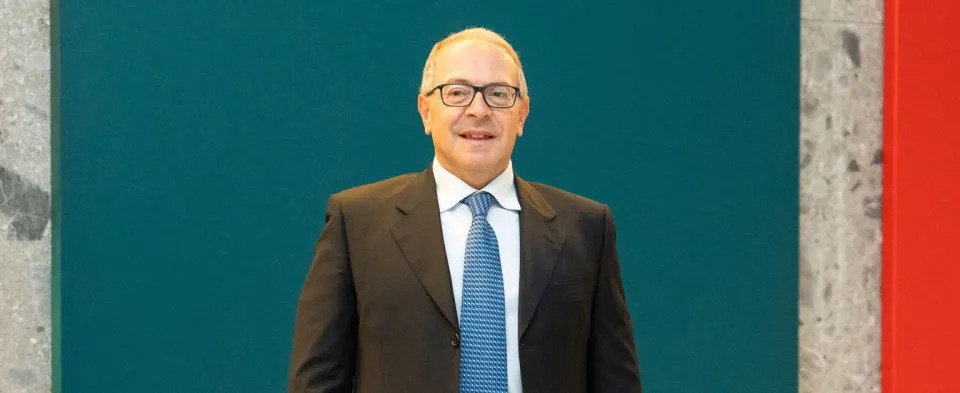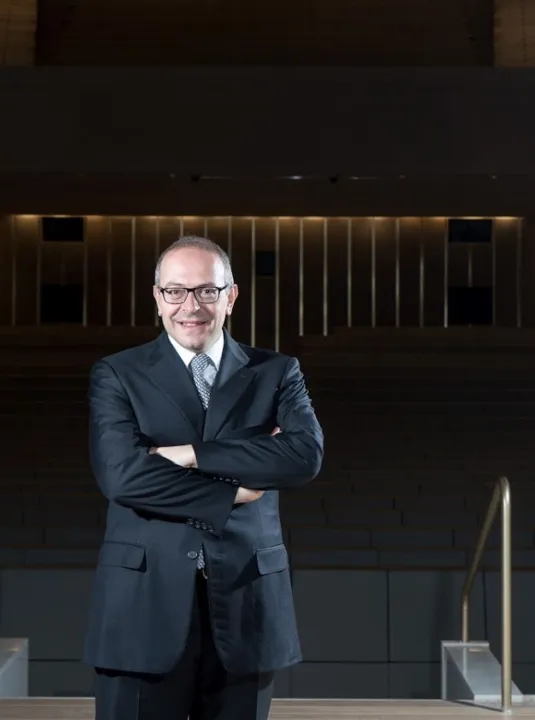
The Baffi Centre: Where Academic Excellence Meets the Real Economy
Named after Paolo Baffi, who was governor of the Bank of Italy and a champion of independence, rigor and public service, the Baffi Centre on Economics, Finance and Regulation at Bocconi was born to uphold that same vision: solid, free research deeply anchored in economic and social reality.
Established in 2015 with the merger of CAREFIN and the old Paolo Baffi Centre, this center now represents one of the main hubs of applied research in Europe on economics, finance and regulation. Since the beginning of 2025, the Center has been directed by Massimiliano Marcellino, full professor of Econometrics.
A meeting point between academia, policy and marketplace
The Baffi Centre's vocation is to combine academic rigor with practical relevance to provide concrete answers to the challenges of public policy and economic innovation. This objective requires the best combination of empirical and theoretical analysis with a constant dialogue with the world of business, government and third sector.
Much of the research produced within the Baffi Centre directly influences the debate on crucial issues such as economic and monetary policy, banking and financial regulation, the competitiveness of European markets, sustainability and technological innovation, welfare and social inequality.
A complex multidisciplinary ecosystem
Today, the Baffi Centre brings together more than 150 researchers affiliated with seven Bocconi departments and is divided into as many as 16 Research Units, each focused on a major thematic area:
- APE (Economics of Aging, Pensions and Healthcare)
- ASSET (Asset and Risk Management)
- BAFIR (Banking, Finance and Regulation)
- CLEAN (Crime and Economics)
- CCR (Competiveness, Competition and Regulation)
- EDUFIN (Financial Education)
- FINAFRICA (Finance in Africa)
- FINTECH LAB
- Global-ID (Trade and Finance)
- INSURET (Observatory on the Insurance Market)
- MONETA (Central Banking, Sustainable Finance)
- MTCAP (Macroeconomic Trends, Cycles, and Asset Prices)
- PERICLES (Institutions and Reforms)
- RULES (Law and Economics)
- SIL (Sovereign Funds)
- SFIB (Investment Banking)
These units all operate with a strong interdisciplinary spirit, involving economists, law scholars, data experts and technological innovation.
Research and communication
Baffi's history is notable for its strong ability to attract funding, both from public agencies — such as the European Commission and Italy’s Ministry of Research and University — and from private entities, bank foundations, financial institutions and firms. “This financial solidity allows the center to support long-term projects, endorse young researchers, and organize scientific and dissemination events of international importance,” comments Massimiliano Marcellino, who adds, “I also want to focus on communication, because research should not remain confined to academia. We have a duty to open up to the outside world, which after all is a goal of Bocconi in general, and to achieve it we have started relaunching and enriching the Center's website. This will be followed in time by other initiatives.”
A European focal point for economic policy
Thanks to an extensive network of collaborations with institutions such as CEPR, the Bank of Italy, the OECD and the European Parliament, Baffi has become a key hub for evidence-based economic policymaking. Some recent examples include studies on:
- cryptocurrency regulation and open banking
- reforming pension systems
- competitiveness and the green economy in Europe
- economic effects of organized crime at the urban level
The Baffi Centre thus represents an important hub of applied economic research: rigorous, multidisciplinary, close to the real problems of governments, businesses and citizens. An intellectual laboratory following Paolo Baffi's lesson: independence, responsibility and international vision.
